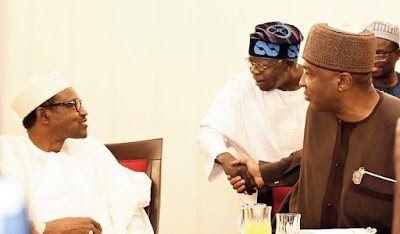By Paul Onomuakpokpo
Neither
time nor sickness can change President Muhammadu Buhari. He would ever remain parochial
and divisive. This is not just an awful attempt to denigrate Buhari and his
hallowed presidential office. No, this is how he wants Nigerians to see him in
his audio message in Hausa on the occasion of the Eid El-fitr, a feast of
Muslims marking the end of Ramadan, the Islamic holy month of fasting.
If the message had only just enjoyed a surreptitious
circulation on the social media with its accompanying non-complicit anonymity
and without official imprimatur, it would not have provoked outrage. We would
have easily dismissed it as one of the regular affronts to the president by the
corrupt who do not wish him well and who in fact prefer an abrupt termination
of his government so that they can be free to enjoy their loot. After all,
there have been many reports on the social media of the president’s death
following which even the British queen had to condole with Nigerians. But the
message was released by the presidency and rapturously recommended to the
growing horde of the naysayers as an indication that the president is not
incapacitated. Clearly, the presidency has not disowned it. And we do not need
to split hairs over whether the voice was genuinely that of the president. We
accept it is his because the presidency has said so.
But what is clear is that it is either that the handlers
of the president who confronted the public with this message as the
unimpeachable evidence of the president’s good health deliberately set out to
humiliate him before Nigerians or they never reckoned with the baleful
consequences of their action. Either way, the audio message has once again
confirmed the apprehension that we are a people saddled with a president who is
not the right person to manage the complex and combustible affairs of the
present-day Nigeria




















